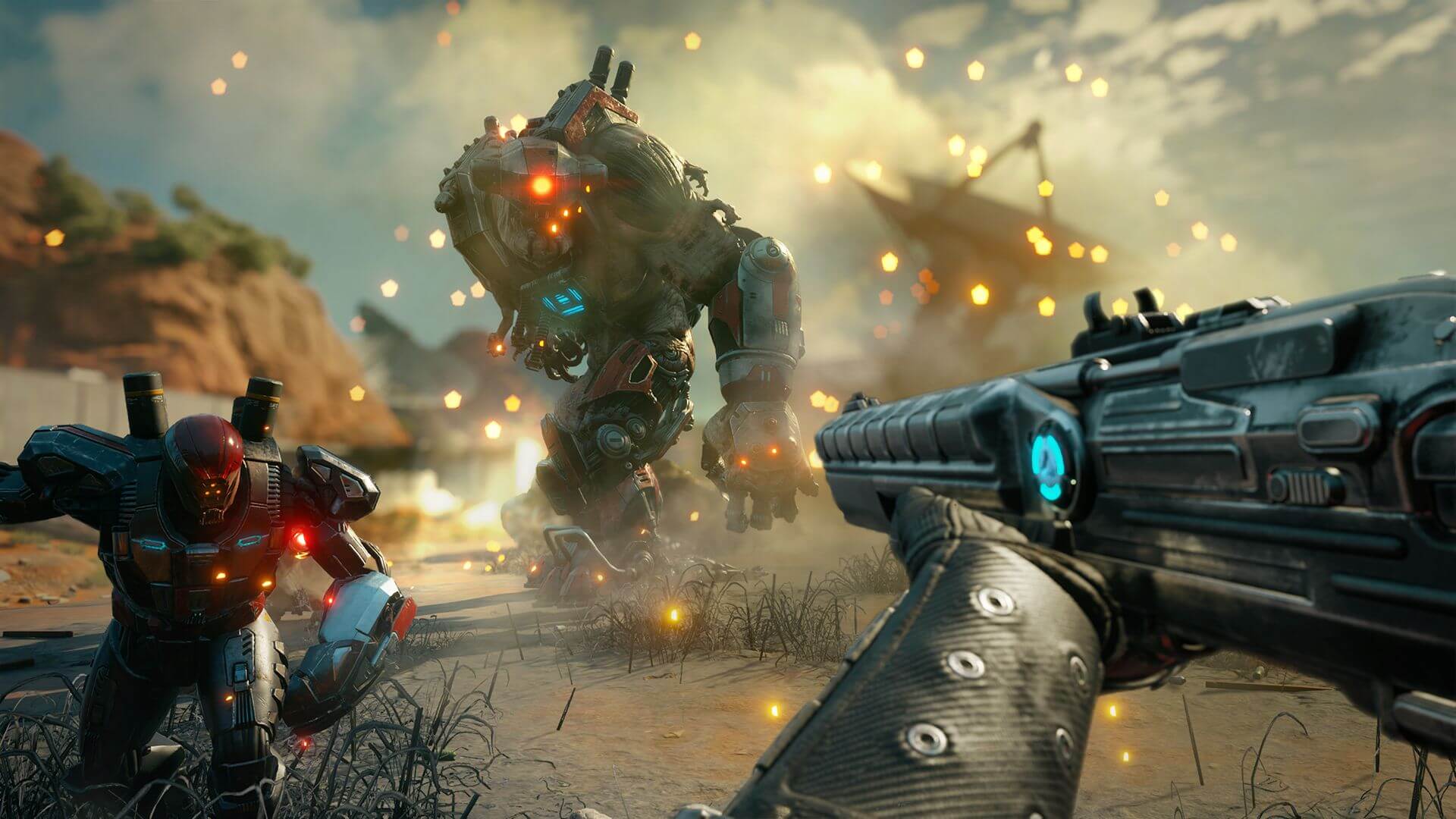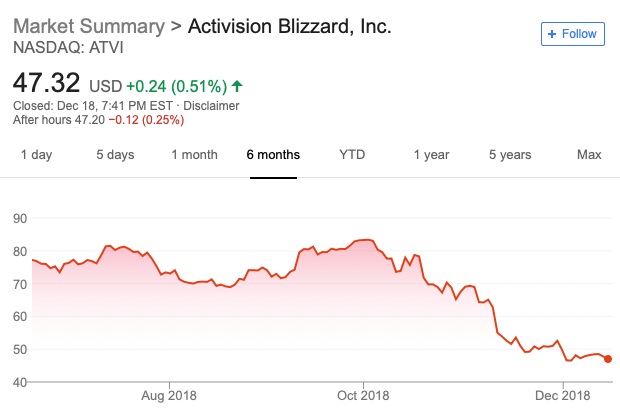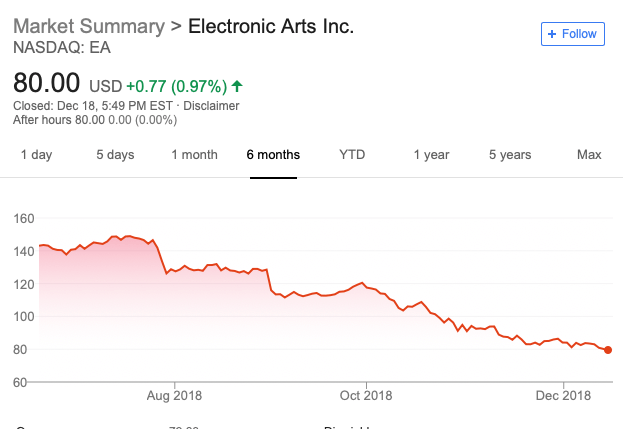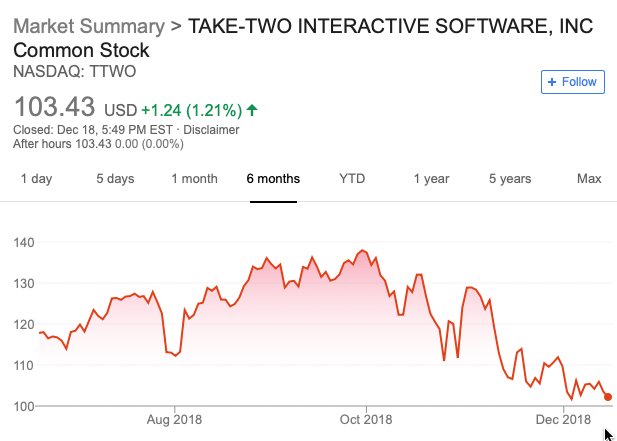Why it matters: Gaming YouTuber TheQuartering posted a video last week detailing why he thinks that the Triple-A gaming industry is headed for a crash. He makes a lot of good points in his 15-minute rant, but three factors stood out for me that lead me to agree that his predictions have merit: Creativity stagnation, gamer backlog, and pressure from investors are all contributing to the tumbling stock prices of the biggest firms in the industry.

Creativity is probably the most critical factor when making a game. Players want something they either have never played before or is different enough that it seems new. This selling point is one that companies like EA, and even Bethesda with the garbage that is Fallout 76, seem to have forgotten. Big franchises have become cash cows that studios milk for every dime before coming out with a new iteration that is only incrementally different than the last.
TheQuartering also points out that companies are using nearly the exact same template in regards to style. He uses Rage 2, Far Cry: New Dawn, and Fallout 76 as examples. All feature a post-apocalyptic world stylized with a sharp, contrasting palette accented with bright neon colors.
“While yes is the gameplay is different, it’s like they all got the same PDF on how to stylize your game,” he said. “To me, they all bleed together stylistically.”
The concept reaches beyond these three examples though. Even Fortnite more or less falls into this odd template.
Player backlog is another thing that is having a drastic effect on game sales. TheQuartering pointed out several games that he has not even opened yet. It caused me to take inventory myself, and I realized I too have an extensive backlog of games that I have either not played yet or not finished. Octopath Traveler, Horizon Zero Dawn, Far Cry 5, and Assassin’s Creed Origins are just a few significant titles on my backlog, which is sadly not even a fraction of the games I own but have set aside.
So with so many games already sitting on the shelf, gamers are less anxious to shell out for a brand new title at full price, especially when it’s just another stale iteration of the last game in the series. This fact has, in turn, led to early and aggressive discounts on games that were expecting huge pre-order turnouts.
Owners of the PC version of "Dark Souls Prepare to Die Edition" will be able to upgrade to "DARK SOULS REMASTERED" at a discounted price. Please feel free to take advantage of this campaign. pic.twitter.com/A3mEXG2tmi
— FROMSOFTWARE (@fromsoftware_pr) April 24, 2018
Dark Souls: Remastered is probably the most notable example of this, although there are others. Before the game was even released, Bandai Namco slashed the price of the game by 50 percent for users who already owned the Dark Souls: Prepare to Die Edition. FromSoftware tried to play it off as giving back to the fans, but more likely it was due to unexpectedly low pre-order sales.
“If video game companies — I’m talking Triple-A — were doing that great would they be putting Fallout 76 50 percent off? Would they have put Battlefield 5 50 percent off? No. Of course not. If they could get full price, they would do it. You’re not going to convince me, ‘No, everything’s going great. They’re just trying to give back to the community.’ Baloney! They aren’t meeting expectations.”
Which brings us to what is probably the biggest contribution to the AAA industry’s downfall — expectations. Where do these expectations come from, gamers? No, they come from investors. Moreover, what do investors know about making video games? Aside from a select few, almost all of them know next to nothing.

The only thing an investor in any video game firm cares about is if the numbers are up. That’s a big problem because no business can go on year after year breaking sales records, yet that’s what investors expect. Every new game, be it a brand new title or an old franchise standard, has to do better than the last or heads will roll.
Because of this constant pressure to never have a loser, game studios are afraid to take risks. They are scared to put something new out there that has a chance to fail. They would sooner go with the winning brand, even though they don’t have anything new to put into it.

Just ask yourself, “how many copies of Assassin’s Creed Odyssey sold just because it was an Assassin’s Creed title?” I could not track down pre-order numbers, but I suspect many people bought the game sight unseen. Fortunately, it ended up being a decent game, but you can’t say the same for Fallout 76. Many fans pre-ordered Bethesda’s grand experiment into a multiplayer Fallout only to be utterly disappointed.
All these factors have led to drastic dips in stock valuation for some of the biggest companies in gaming. Activision Blizzard is down 43 percent since October. Electronic Arts is down 47 percent since its peak of $148 per share last summer. Take-Two, which includes studios like Rockstar and 2K, is down 25 percent since October as well. If it were not for Red Dead Redemption 2, it would probably be in the same boat as the rest.

While the declines are less dramatic year-over-year, TheQuartering believes a crash is coming and has been for a while. These huge studios will not go out of business — they are simply too big, but layoffs and announcements of restructuring seem imminent. We could start seeing the effects possibly as soon as next year, he predicts.
I’m not sure that I agree with him on this point. I think the AAA-game industry has not hit the bottom of the barrel just yet. There is still time for studios to recover from a bad showing come next year. However, the problems that led here are systemic, and without a complete overhaul, a crash is indeed unavoidable.
https://www.techspot.com/news/77923-next-aaa-games-crash-imminent.html